There are a lot of reasons to go to tech conferences, and even more of a reason to go to a conference focused specifically on your chosen programming language. My favorite is Python.
Rather than rehash all the various reasons why conferences are great and you should attend, I'll go right into which Python conferences you might want to show up to in 2019.
PyTennessee
- Conference homepage
- Dates: February 9-10, 2019
- Location: Nashville, Tennessee
- Registration: Open; $100 individual, $200 corporate
Started in 2014, PyTennessee is an annual regional conference held every February in Tennessee. It features much of what you'd expect from a conference: keynotes, regular speakers, tutorials, and some company exhibitions.
The talks cover topics from software development to data science and machine learning. Often, speakers will also talk about developer-adjacent topics, such as developing emotional intelligence as developers and better ways to build engineering communities. There's a Game Night/After Party on the Saturday and the conference provides some programming education through its Young Coders program.
This conference is a nonprofit event facilitated by TechFed Nashville, an organization with the mission to support and grow grassroots tech talent in Tennessee through educational events and groups.
PyCascades
- Conference homepage
- YouTube
- Dates: February 23-24, 2019
- Location: Seattle, Washington
- Registration: Open; $82.57 student, $110.10 individual, $220.20 corporate
PyCascades debuted this year in Vancouver, BC, Canada, as a regional PyCon in the Pacific Northwest. Its organizing team includes members from Python user groups in Vancouver, Seattle, and Portland. I'm quite partial to this event, as I was able to give the talk that spurred my first posts to Opensource.com!
Last year's conference was fairly small, with final sales peaking just under 400 people. The 2019 iteration in Seattle is set for a larger guest list, but the general feel of a small regional conference is still the goal.
Like PyTennessee, the talks encompass a variety of skill levels (beginner to advanced) as well as technical topics (web dev, device dev, tech education, data science, and machine learning). Last year's conference also featured several talks on tech-adjacent topics like understanding racial bias in your software and navigating unconscious bias in your personal and professional interactions.
One of the big differences at PyCascades is that there is no dedicated Q&A portion for any talk (at least there wasn't last year). There are instead breaks after each talk where speakers can engage directly with people who have questions or comments while the next speakers prep to begin their talks.
The talks occur in a single track, eliminating the need to make tough decisions about which to attend and which to leave behind. Last year, it finished with a day of sprints, where participants gathered together to collaborate on and push changes to various Python-focused open source projects.
PyCon US
- Conference homepage
- YouTube (2018)
- Dates: May 1-9, 2019
- Location: Cleveland, Ohio
- Registration: Open; $125 student, $400 individual, $700 corporate, $150 per tutorial
PyCon is the big Python conference that brings Pythonistas together from around the US and often from around the world. While the regional conferences may last two or three days, PyCon exceeds a week, with a variety of events and workshops—talks are only a small bit.
Prior to the three main days of talks and keynotes that typically define a conference, PyCon features two days of tutorials on a variety of Python projects that often are given by the creators or maintainers of the projects. During the main conference days, there are dozens of talks organized by topic, a massive exposition hall for conference sponsors and vendors often looking to hire or educate about their products and services, an academic poster session, a dedicated job fair, and a benefit auction. The final four days are full of sprints on various projects that are looking to attract developers of all experience levels.
All in all, PyCon is a great place to learn about new products and techniques, teach others from your own experience, and meet dozens of new people at all experience levels throughout the world of Python development.
PyOhio
- Conference homepage
- YouTube
- Dates: July 27-28, 2019
- Location: Columbus, Ohio
- Registration: Open; Free!
PyOhio is unique in one sense because it's the only event on this list that's completely free. The organizers ask for donations, but there's no barrier to entry if you can't manage one. It's also special in that, while they do have corporate sponsors, there are no exhibitors.
PyOhio is all about the talks and sprints. The evening before the conference's two days of talks and tutorials, there's an opening reception with sprints, with more sprints at the end of the first day. The talks are the same variety of Python-focused presentations that we've come to know and love, featuring speakers from all over.
On its own, it's a great conference to attend. It's even better if your budget for conference attendances is tight but you still want to be part of the community.
DjangoCon
- Conference homepage
- YouTube
- Dates: September 22-27, 2019
- Location: TBD
- Registration: Not open yet; 2018's fees were: $295 discounted, $595 individual, $795 corporate, $195 per tutorial
While the name may imply a strong focus on the Python web framework Django, DjangoCon also includes a fair bit of content that appeals to all Python developers. It is still very strong on Django and features tutorials, talks, and sprints for the framework and its related packages and practices.
The first day is filled with 3.5-hour tutorials at various levels. The next three days feature keynotes and two talk tracks about various topics in Django and Python development.
If you're on the job hunt, this is a great time to meet companies with interest in Django enthusiasts. If you're hiring, you can find Django users at all levels everywhere you turn.
The last two days feature sprints, where you can work alongside many project maintainers and team leaders in the Django community.
PyGotham
- Conference homepage
- YouTube (2018)
- Dates (likely): Early October 2019
- Location: New York City
- Registration: Not open yet; 2018's fees were: $75 academic, $200 individual, $300 corporate
Founded in 2011 and based in New York City, PyGotham features two full days of talks and social events for Python enthusiasts of all types. This conference is focused heavily on the talks, with no sprints or exhibitors to speak of. There are tutorials, but they're specifically for young coders (age 10 and older).
The talk topics range across all types of Python topics, from web dev, to natural language processing, to testing, to Python fundamentals. If you attend PyGotham, you'll be getting a great dose of useful tricks and great lessons about the language.
North Bay Python
- Conference homepage
- YouTube
- Dates (likely): Early November 2019
- Location: Petaluma, California
- Registration: Not open yet; 2018's fees were: $50 individual, $100 individual supporter, $200 corporate, $500 individual sponsor
North Bay Python is a two-day, single-track, nonprofit Python conference held in downtown Petaluma, California. Its goal is to appeal to every type of Python user, from students to field experts. Like PyCascades, it's a fairly small conference; 2018's event hosted about 400 attendees.
The conference features over 20 sessions from experienced presenters hailing from across the US and other countries speaking on a wide mix of topics. Sessions include updates from leading Python community members on the state of major projects, technical explorations of how Python and Python-based systems work in practice, and thought-provoking explorations and lessons about people-focused, tech-adjacent topics like team development, diversity and inclusion, and communication skills.
PyData
- Conference homepage
- YouTube
- Dates: Various (next one is Jan. 9-11, 2019)
- Location: Various (next one is in Miami)
- Registration: Open (Miami); $85 student, $235 individual
While the other conferences on this list range across various areas of Python software development, PyData is specifically geared toward users and developers of data analysis tools. The global PyData network promotes discussions of best practices, new approaches, and emerging technologies for data management, processing, analytics, and visualization. In its focus on all things data, this conference also includes other languages big in analytics, such as R and Julia.
The upcoming event in Miami has a specific call for presentations addressing some of the concerns and strengths of South Florida, including climate and weather modeling, ecological data, civic data science, digital humanities, and biomedical data.
See our list of 40 top Linux and open source conferences in 2019 for more upcoming events to attend. Are you proposing a talk for a 2019 event? Maybe the topic would also make a great article for Opensource.com. Send your story idea to us at open@opensource.com.

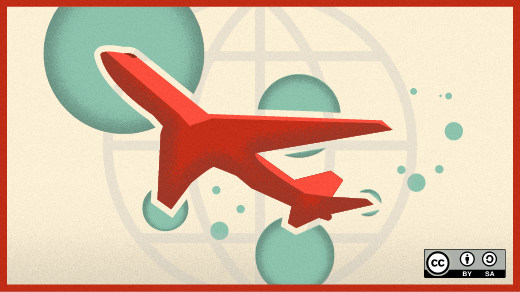

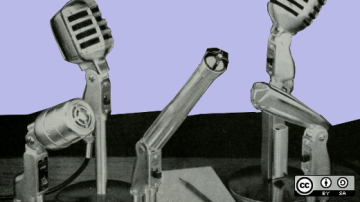
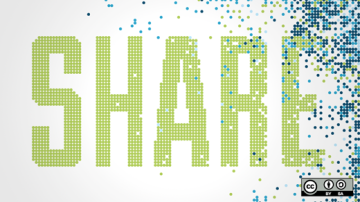
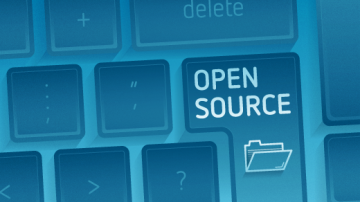


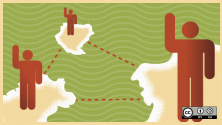



Comments are closed.